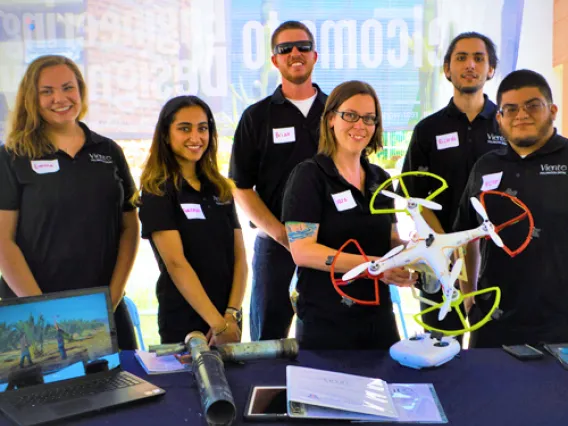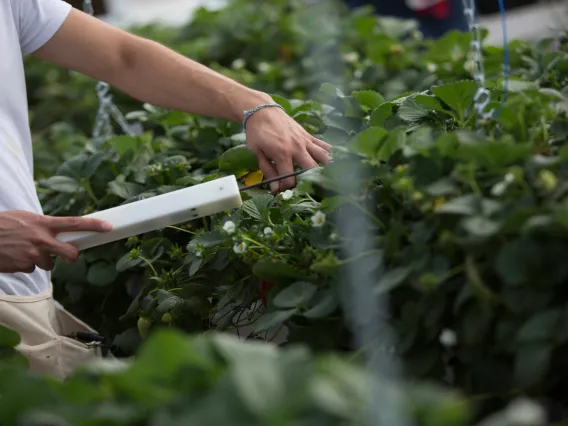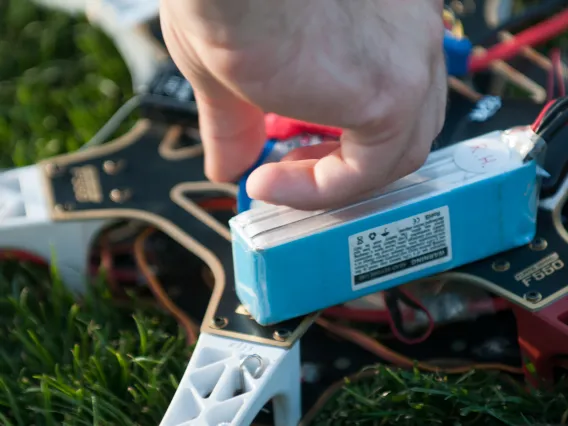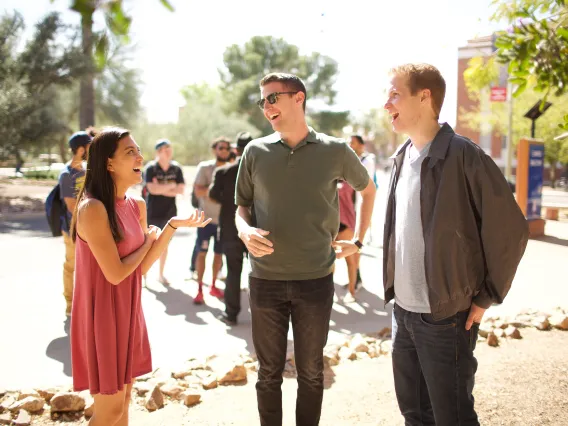
Discover the cutting-edge degree programs in Biosystems Engineering, Biosystems Analytics and Technology, and Sustainable Plant Systems. Our programs equip students with the knowledge and skills to harness engineering, data science and sustainable practices to address the world's most pressing challenges in food production, biological product development, and resource management.
What makes us different
As a student in the Department of Biosystems Engineering, you’ll be able to:
- Study precision agriculture and crop development with drone technology -- right from the classroom!
- Explore the latest research in medical diagnostics in the Biosensors Lab, with projects focused on smartphone-based biosensors, handheld systems for virus and cancer identification, and organ-on-a-chip technology.
- Dive into your interests in the Controlled Environment Agriculture Center, which houses the Sensing & Climate Control Lab, Mars-Lunar Greenhouse, Pryor Mushroom Lab, South Pole Growing Chamber and Vertical Farm.
- Use the fabrication shop and lab to build your own prototypes.
- Earn dual credit for a bachelor’s and master’s degree through our accelerated master's program. (Biosystems Engineering students)
- Join a club like the Biosystems Engineering Club or Engineering Ambassadors, or complete a paid internship, to apply your studies to real-life experiences.
Undergraduate programs

B.S. Biosystems Analytics & Technology
Bridge the gap between data science and technology by combining biological, physical and data sciences with technology.

B.S. Biosystems Engineering
Solve resource challenges by using your interest in engineering, science and technology to overcome drought, disease, famine and flooding.

B.S. Sustainable Plant Systems
Discover innovative plant systems that maximize production, conserve resources and minimize environmental damage.

Biosystems Analytics & Technology Minor
Enhance your major with valuable biosystems technology and data analytics skills.

Lower your cost to attend
The estimated cost to attend the university depends largely on whether you’re a resident or non-resident and whether you plan to live on campus, off campus paying rent, or live with a family member rent-free. You can lower your cost through scholarships and financial aid. Use our net price calculator to estimate your scholarships and aid eligibility, and total cost.
How to apply
A completed application includes any required self-reported grades, transcripts, application fee and proof of English proficiency, if required. Visit the University of Arizona Office of Admissions for a complete list of admissions requirements.
